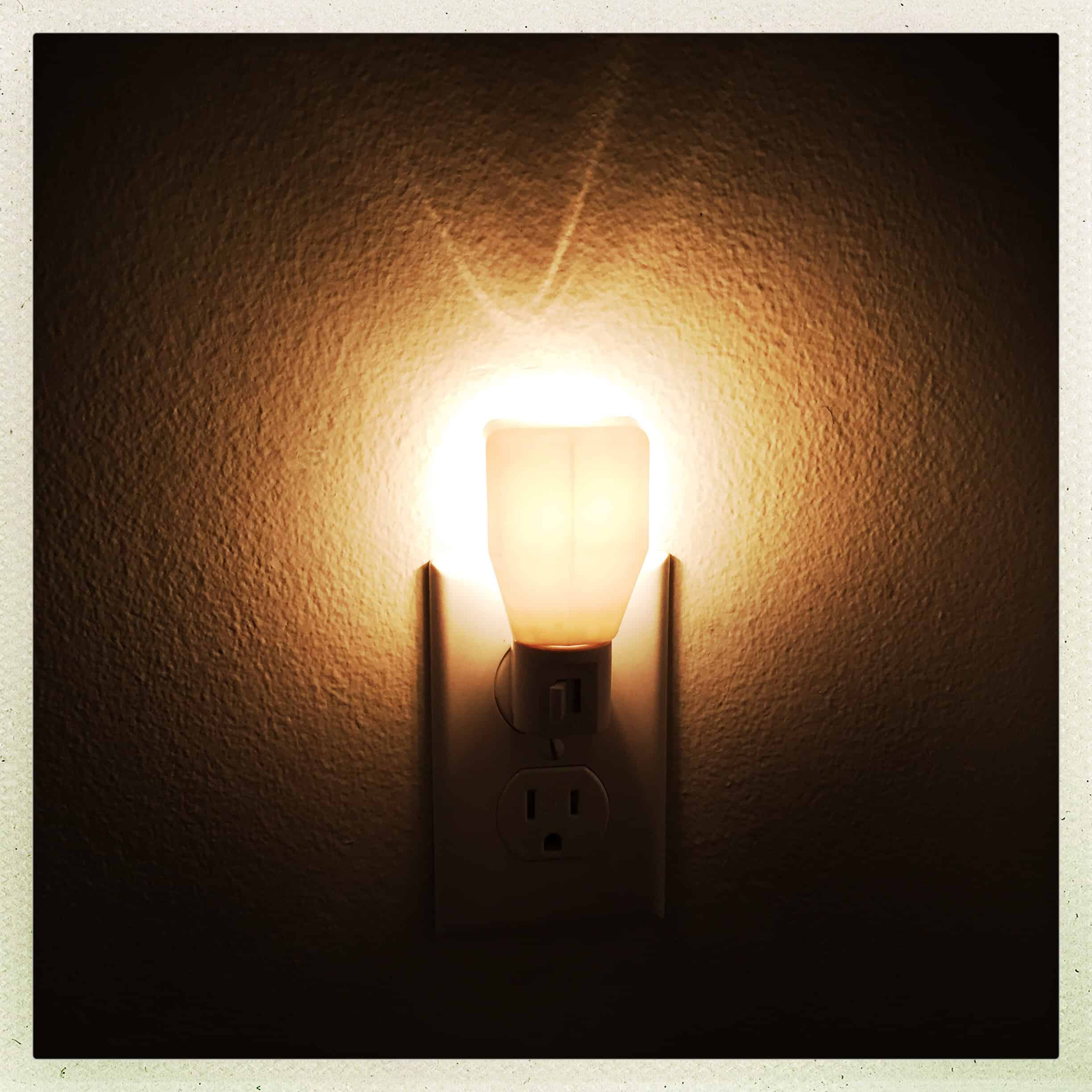Light Matters
Newborn, toddler or adult, exposure to light before we go to sleep matters. It can affect the way that we fall asleep as well as the quality and duration. Below is a nice summary of why light affects our sleep as well as the worst types.
Many parents around the world are making one very simple, but huge mistake that is potentially inhibiting their child’s sleep and contributing to difficult bedtimes and frequent night waking – the use of nightlights or other light shows.
Why Nightlights are Ruining your Child’s Sleep
The reason that nightlights, light shows and glows from baby monitors can have such a devastating effect upon sleep is due to the effects of the wavelengths of different colors of light on the human body. White and blue based lights, regardless of how dim, will inhibit the secretion of the sleep inducing hormone melatonin at night. Melatonin is released by the brain in response to light sensitivity in the eyes. During the day, the presence of sunlight triggers the brain to secret cortisol, which causes feelings of alertness. In the absence of light, our eyes send a message to our brains to secrete melatonin, which causes feelings of drowsiness. In a world without electric lights, the secretion of melatonin in children would likely occur at dusk. Melatonin is necessary for us to not only go to sleep initially, but stay asleep longer overnight.
Light in the Home
Most nightlights utilize white, blue or green hues. These colors are commonly considered to be soothing, which is why manufactures select them for their products. White and blue based light, which covers almost all forms of lighting used in the home, inhibit the body’s secretion of melatonin by tricking the brain into believing it is still daylight.
Lighting all over the home makes a difference, not just what’s in your child’s bedroom. This day in age we are bombarded with artificial light everywhere. Tv’s, laptops, computers, Ipads, and smart phones can all be problematic.
Red Light
Red light is the most sleep friendly light. It has a higher wavelength of light than blue, white or green and doesn’t inhibit sleep or interfere with melatonin production. Red light doesn’t improve sleep, it just doesn’t interfere with the building blocks of it. Red lights are growing in popularity and many versions are now available.
From a biological perspective, it’s best to use no light in the nursery or child’s bedroom and they should sleep in complete darkness. This is the environment that will promote the best sleep. Red light is by far the second best option.
Tips for peaceful sleep:
- Several hours before bed:
- limit any screen time
- reduce stimulating activities
- dim harsh lights, or turn them off completely
- Have a nightly routine that is calming. This could include a bath, quick massage, several books and last feed. Lighting during all of these activities should be dim. Better yet use natural light if possible or a red light option.
- During night feeds for a baby, use no light if you can. Use red light if necessary. A small head lamp or another red light are good options.
- Blackout blinds are a good investment if your baby or child is going to bed before it is dark, which is most likely in the summer. Blackout blinds are also very helpful to prevent early morning wake up’s.
This blog post was inspired, adapted and paraphrased from an article written by Sarah Ockwell
